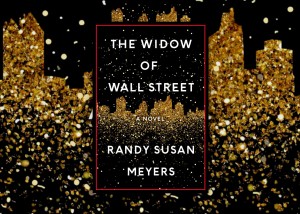 When Bernie Madoff’s crimes came to light, Ruth Madoff caught the rage right along side him. With no evidence, she was thrown on a virtual pyre—charged guilty by association and wedding ring.
When Bernie Madoff’s crimes came to light, Ruth Madoff caught the rage right along side him. With no evidence, she was thrown on a virtual pyre—charged guilty by association and wedding ring.
The world expected Hillary Clinton to answer for Bill Clinton’s infidelities, both by denying the charges in the aftermath and then absorbing the blame as she ran for president. Donald Trump’s infidelity was somehow equated with Hillary Clinton’s husband’s infidelity.
Camille Cosby has been consistently berated, asked to answer for her husband’s crimes, as Beth Teitell wrote in the Boston Globe:
It’s the husband, not the wife, who has been accused of crimes. But as the number of women alleging Bill Cosby drugged or sexually assaulted them reaches into the dozens, frustration is mounting against Camille Cosby, too.
Like betrayed wives before her — Hillary Clinton most famously among them — Camille Cosby is being called upon to answer for her husband’s behavior — and her own.

Rage flew at Hillary Clinton, Camille Cosby, and Ruth Madoff—anger encased in years of baked-in sexism, not dissimilar to the Betty Crocker school of blame-the-victim-unless-she-is-above-all-reproach (Betty Crocker representing the lovely, perfect woman). Anyone working in criminal justice recognizes this syndrome: female victims, whether of strangers or husbands, must be above reproach to merit either sympathy or empathy, and they are deemed guilty and imperfect until proven otherwise.
Crimes have multiple victims, including those who receive the least (or most inappropriate) attention: the family of the perpetrator. Sinners stain their families along with themselves.
Andy Borowitz savagely parodied Ruth Madoff in The Huffington Post: “Just hours after her husband Bernie Madoff was sentenced … Ruth Madoff expressed shock and dismay at her husband’s behavior, telling reporters, ‘This is not the man I owned nine homes with. When you spend hundreds of millions of dollars with someone, you think you know him.… I guess I was wrong.’”
Ruth, Camille, and Hillary became the joke and the target of rage over their husband’s crimes and misdemeanors. Not a shred of sympathy was spared.
Reactions to hearing the subject of my new novel, The Widow of Wall Street (based on a situation not unlike the Madoffs, from both the wife and husband’s point of view—written based on years of reasearch, including reading the magnificent nonfiction book, The Wizard of Lies by Diana Henriques, multiple times ) fascinated and saddened me, as the first thing most men and women say is, “She must have known,” or “Of course she knew,” with an air of surety one usually reserves for an awareness of the closest of friends.
Why? Why must she have known?
Who does not have a friend who suddenly found out that her husband of forty years was cheating for decades, a cousin who learned her husband hid money in his business accounts? A sister who tragically finds out about her partner’s affairs when she gets tested for AIDS?
Fascinating in the umbrage is how the same people who insist that she must know don’t question how financially literature men and women were fooled by what turned out to be the most naïve of plans. After three years of researching The Widow of Wall Street, I’m shocked that anyone schooled in finance (and many of his victims were financially literate) believed in Madoff’s constantly, year-in, year-out, positive returns, the lack of up-to-date computerization, and the lack of online confirmations. And yet they did, while we insist that Ruth Madoff, who was neither an accountant—though she helped her husband with bookkeeping early in his career—nor a stockbroker, banker, money manager, or investor, must have known the details of the two arms of her husband’s convoluted business.
Perhaps we think these things because we want to believe that we, of course, are immune. That our husbands have been and will always be above board in all they do. That we can never be fooled and there is no wool to be pulled over our eyes. We are protected.
Like so many musts in this world, these stories we tell ourselves end up being a flimsy garment we wear to feel secure and safe in our lives, because the reality of our fragility is a frightening as it is omnipresent. It can’t happen to me. That is the unspoken theme that we clutch.


